Search
Summary
Loading AI-generated summary based on World History Encyclopedia articles ...
Answers are generated by Perplexity AI drawing on articles from World History Encyclopedia. Please remember that artificial intelligence can make mistakes. For more detailed information, please read the source articles
Search Results
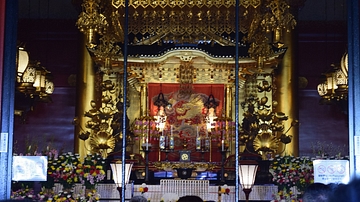
Image
High Altar at Sensoji Temple
This is a picture of the high altar at Sensoji Temple in Tokyo, Japan, which is protected by a screen. In 645 CE, the renowned Buddhist priest Shokai visited Tokyo and built a hall for the worship of the Bodhisattva Kannon. (Many thus attribute...
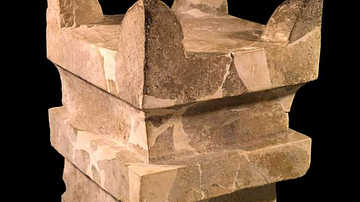
Image
Israelite Incense Altar
This object is a limestone incense altar. It was excavated from Megiddo and dates to the Iron Age II (9th Century BCE). It has a height of 54.5 cm (21.4 in), a width of 27 cm (10.6 in), and a length of 28.5 cm (11.2 in). (The Israel Museum...
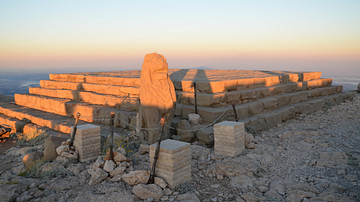
Image
Stepped Altar on Mount Nemrut
The square and stepped altar platform located at the eastern side of the East Terrace of Mount Nemrut in southeastern Turkey.
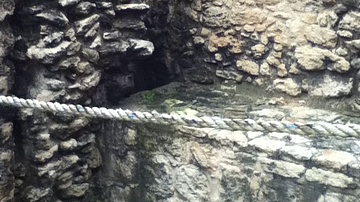
Image
Detail of Altar Temple of Ways Chacchoben
Detail of the sacrificial altar at the Temple of the Ways, Maya city of Chacchoben, c. 700 CE.
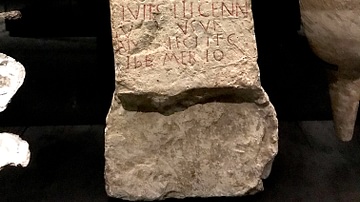
Image
Gallo-Roman Altar
This Gallo-Roman altar was donated by Quintus Nicennius in honor of the Celtic goddesses of the crossroads. The worshiping of these deities dates back to the era before the Roman occupation of Gaul and what is now present-day Switzerland...
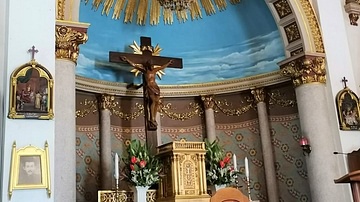
Image
Santa Cruz Church Altar
The Santa Cruz church altar showing a sky-coloured fresco of Jesus on the cross. The Renaissance Neoclassical style church standing today in Kudeejeen, Bangkok was built in 1834 CE.
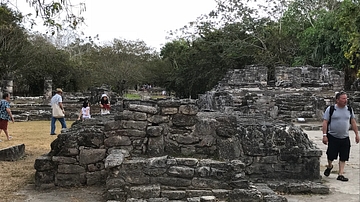
Image
The Maya Altar at San Gervasio
This structure had a ceremonial use for the Maya people as it lies in the middle of the plaza at San Gervasio, which is located on the island of Cozumel, Mexico. It therefore must have served as a dais from which the speaker addressed the...
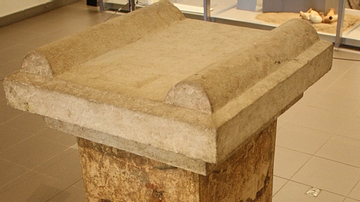
Image
Roman Garden Altar, Empuries
A marble altar from the garden of a private Roman home in Empuries (Emporiae). 1st century CE, domus 2B. The sides are decorated with painted scenes of a cockerel and, on the reverse side, a two-handled glass vessel containing a pineapple...
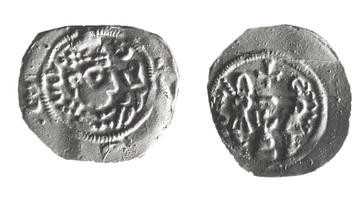
Image
Kartli/Iberia Coins with a Cross & Altar
Silver. The weights range from 2,44 gr. to 3,23 gr. d= 26/27-29/30 mm. Obverse: Ohrmazd IV to the right. Legend in Pehlevi: hrm – aphzu (Ohrmazd Augustus). This is placed within onefold circle of the dots. Reverse: Cross on altar...
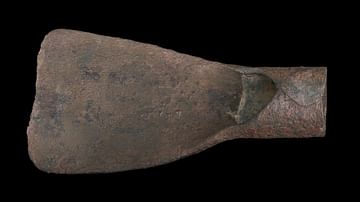
Article
The Song of the Hoe
The Song of the Hoe is a Sumerian praise poem celebrating the hoe for its many uses and linking it to the creation of the world by the great god Enlil. As the economy of Mesopotamia was almost entirely based on agriculture, it is not surprising...